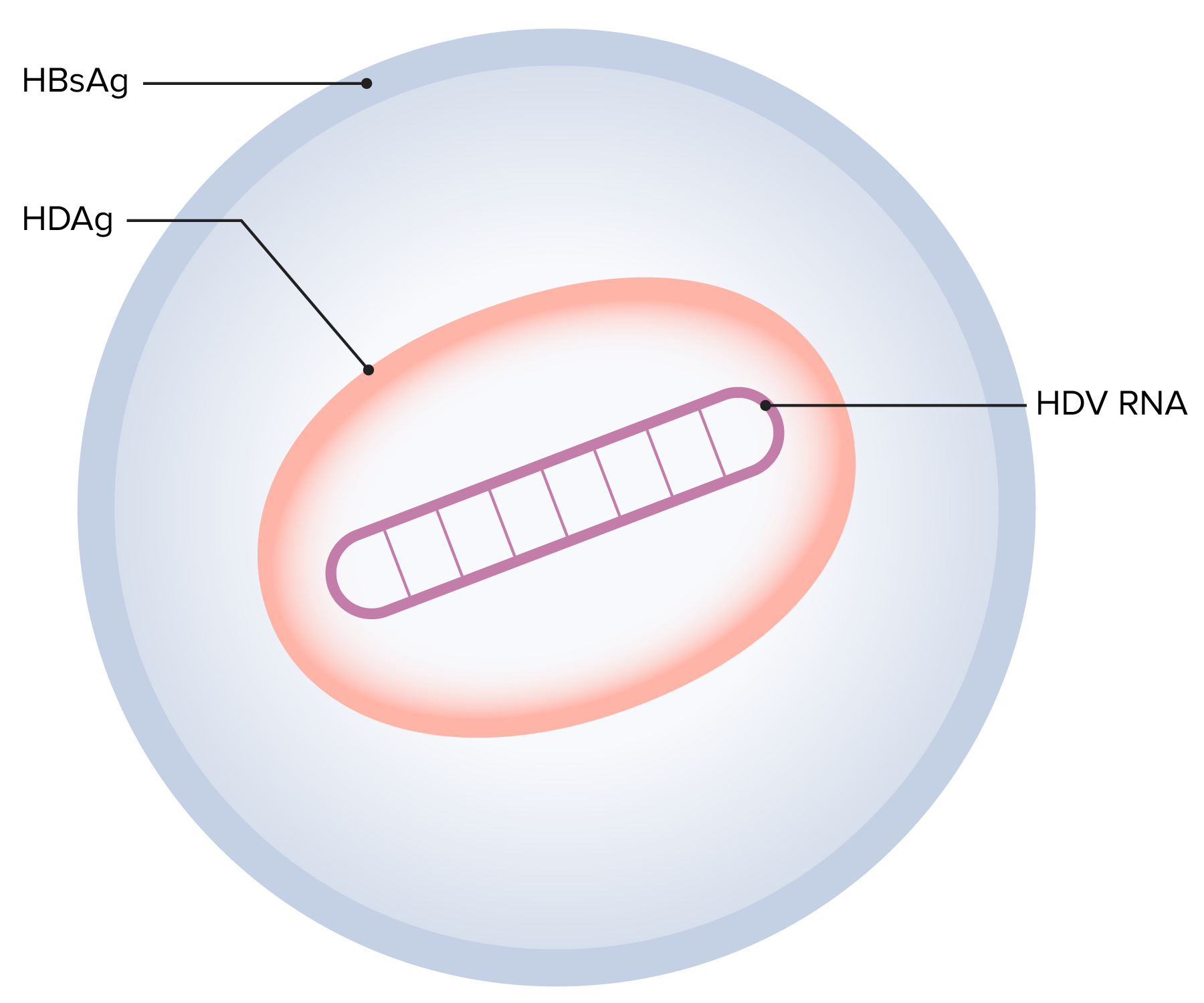Playlist
Show Playlist
Hide Playlist
Hepatitis D
-
Slides GIP Viral Hepatitis.pdf
-
Download Lecture Overview
00:01 Okay, after A, B and C, comes D. 00:04 So hepatitis D, or delta virus is an interesting entity. 00:09 It is a defective single stranded RNA virus like particle. 00:14 It doesn't have a membrane around it, it cannot on its own, making an active and proficient infection. 00:24 It requires and it can only propagate in the presence of hepatitis B. 00:30 And that's because Hepatitis B provides the envelope protein that allows the virus to mature and then potentially be passed along. 00:38 So it is a co-conspirator, it required, you would never get hepatitis D alone. 00:44 You only get it in the setting of pre existing Hepatitis B infection with a chronic infection or a brand new hepatitis B infection. 00:54 Concurrently with blood that is carrying hepatitis D. 00:58 It's a blood born pathogen. 00:59 Again, there's vertical and sexual transmission. 01:03 It is a severe acute disease. 01:07 In fact, there's a very high risk with hepatitis D of severe fulminant failure about 20% of cases. 01:16 There is also a higher incidence compared to hepatitis B of chronic infection. 01:21 So about 15 million people worldwide are chronically infected, but they also have to have Hepatitis B at the same time because you can't propagate the virus without being able to make the envelope protein. 01:34 The extra hepatic manifestations are again due to immune complex deposition, chronic virus, chronic antibody immune complex. 01:43 The labs include looking at the HDV antigen and looking at antibodies against the virus. 01:49 And there is a vaccine for hepatitis B. 01:53 And if you have that, then it's impossible once you have a good immune response to get hepatitis D. 01:59 So again, the same sort of schematic story with infection at time zero viral replication, then a response of the host to the virus. 02:12 If you clear it effectively, because you are making good antibody and T-cell responses, then everything goes away. 02:18 If you don't effectively clear it, then you can get continued replication of virus in the immune complex deposition problems, as well as the chronic hepatitis.
About the Lecture
The lecture Hepatitis D by Richard Mitchell, MD, PhD is from the course Disorders of the Hepatobiliary System.
Included Quiz Questions
What is the structure of hepatitis D?
- Single-stranded RNA
- Double-stranded RNA
- Single-stranded DNA
- Double-stranded DNA
- None of the above
What does hepatitis D require for propagation?
- HBV surface antigen envelope
- HAV surface antigen envelope
- HCV surface antigen envelope
- HEV surface antigen envelope
- HIV surface antigen envelope
Customer reviews
5,0 of 5 stars
| 5 Stars |
|
5 |
| 4 Stars |
|
0 |
| 3 Stars |
|
0 |
| 2 Stars |
|
0 |
| 1 Star |
|
0 |




